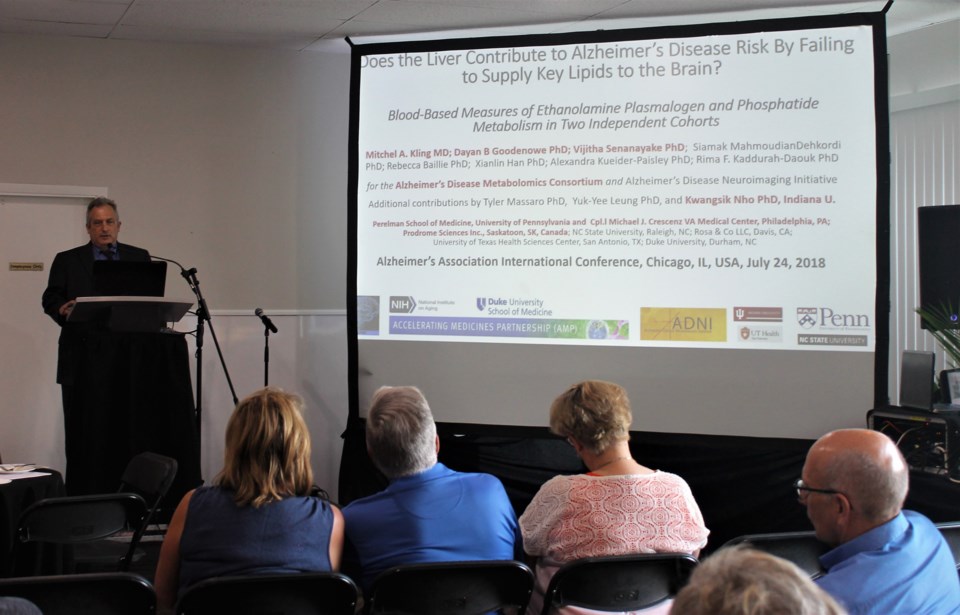In light of prodrome research from Dr. Dayan Goodenowe and his colleague Dr. Mitchel Kling, they are suggesting that good liver health could potentially delay the onset of diseases like Alzheimer’s or other dementia.
At the recent Prodrome Health Centre opening, Goodenowe and Kling presented research that could be the key to delaying and even curing degenerative diseases like dementia, Parkinson’s, and multiple sclerosis.
Kling’s presentation of his research and trials offered the theory that neurodegenerative disease, like Alzheimer’s, could begin in the liver.
If the liver is failing to properly synthesize plasmalogens and other key lipids, or fatty acids like omega-3, the brain is not receiving enough of these chemicals, which has been seen to cause cognitive impairment.
Kling concluded by summarizing that low levels of certain plasmalogens could be a factor in an increased likelihood of Alzheimer’s and impaired cognitive functions, essentially noting that a healthy liver could be the key to combating dementia.
Goodenowe then presented data from clinical trials, which took a deeper look at the role plasmalogens play in disease management. He concluded that low plasmalogen levels seemed to coincide with higher rates of disease development.
In another clinical trial, using mice and monkeys, they found that augmented plasmalogen levels could give protection from specific neurotoxins that cause diseases such as Parkinson’s or MS.
Increased levels of plasmalogens protected subjects from the neurotoxin when it was administered after the plasmalogen, and decreased the subject’s degeneration when the neurotoxin was present before administering the plasmalogens.
In summary, Goodenowe and Kling believe that their research could be onto a solution for degenerative diseases, and that solution could stop disease before it manifests.
The pair announced they will be beginning a clinical trial with human subjects by the end of 2019, to evaluate the success of the augmented plasmalogen precursor used in previous trials to deal with Parkinson’s, MS, and dementia.
The precursor is being developed as a natural supplement, as it seems the easiest way to get the science to the community.
“If you can deliver a highly effective treatment as a natural, safe supplement, that's far more preferable than giving it as a prescription,” said Goodenowe. “As a natural supplement, it's available as soon as we bring it out.”
The details have yet to be announced, but Goodenowe hopes that positive results from this clinical trial will make Saskatchewan a leader in reducing dementia statistics.
“I want Saskatchewan to be the first geographical region in the world to show a decrease in dementia rates,” said Goodenowe. “Right now, dementia rates are going up all around the world, so we have an opportunity to do something really special.”
Currently, Saskatchewan has around 13,000 people living with dementia, according to Goodenowe, with around 3,000 new diagnoses each year. He hopes his research will reduce those numbers.
“Someone has to be first, and it’s going to be here,” he said, to conclude his presentation.




